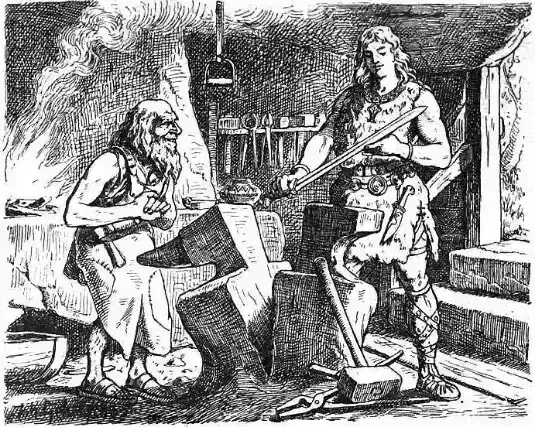Aeneid

The Aeneid is a Latin epic poem written by Virgil between 29 and 19 BC that tells the legendary story of Aeneas, a Trojan hero who survives the fall of Troy and ultimately becomes the mythical ancestor of the Roman people. Comprising 12 books and nearly 10,000 lines in dactylic hexameter, the poem is considered Virgil’s masterpiece and one of the greatest achievements of Latin literature.
The epic is divided into two major parts. The first six books recount Aeneas's wanderings after Troy’s destruction, including his storm-tossed journey across the Mediterranean and his tragic romance with Queen Dido of Carthage. The latter six focus on Aeneas's arrival in Italy and the war he wages against the native Latins, through which he secures a new homeland for his people. Ultimately, his descendants—through the merging of Trojan and Latin bloodlines—are destined to found Rome.
Although Aeneas appears as a minor character in Homer’s Iliad, Virgil reshaped his myth into a powerful national epic that unified scattered Greek, Etruscan, and Roman traditions. Aeneas is portrayed as the embodiment of pietas—devotion to the gods, family, and duty—making him an ideal Roman hero. Virgil used the epic to tie the founding of Rome to the legendary grandeur of Troy, reinforce traditional Roman values, and lend divine legitimacy to the Julio-Claudian dynasty, especially Augustus, Rome’s first emperor.
The story of Aeneas predated Virgil by centuries. As early as the 6th century BC, Greek colonists in Magna Graecia and Sicily used Trojan myths to link themselves to their new settlements, with Aeneas serving as a bridge between Greek myth and Italian geography. Greek vases from that period depict Aeneas arriving in Etruria, and archaeological finds such as altars in Lavinium—the city Aeneas was said to have founded—attest to early veneration of him long before Virgil’s time.
Over time, the Romans absorbed these traditions, particularly after their encounters with Greek colonies and the victory over King Pyrrhus in 280 BC, which marked a growing interest in tying Roman identity to Greek heroic myths. Aeneas provided a convenient link, allowing Romans to view themselves as the noble inheritors of Troy’s legacy.
Literary evidence also supports a pre-Virgil tradition of Aeneas in Italy. A now-lost fragment attributed to Hellanicus of Lesbos suggested Aeneas helped found Rome alongside Odysseus, naming the city after a Trojan woman named Rhome. Although the attribution is debated, it reflects how widespread Aeneas’s legend was. Other ancient sources, such as Alcimus, even imagined Aeneas as the father of Romulus, Rome’s legendary founder, by a woman named Thyrrenia.
In shaping the Aeneid, Virgil drew from these diverse traditions and transformed Aeneas from a marginal Homeric figure into the quintessential Roman forefather—a man of destiny whose journey and sacrifices laid the spiritual and moral foundation of Rome itself.


